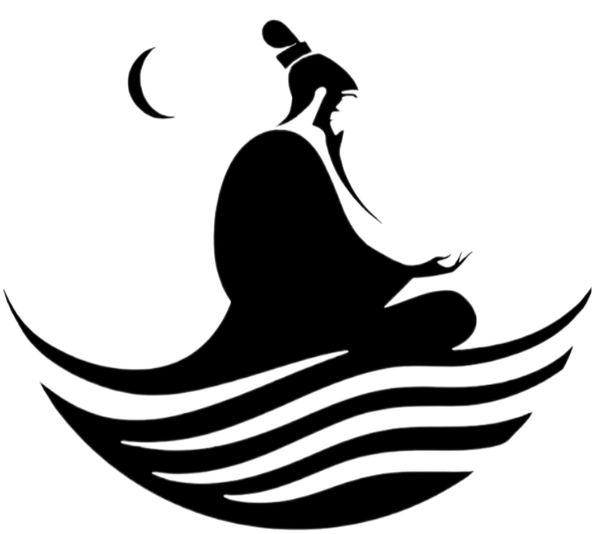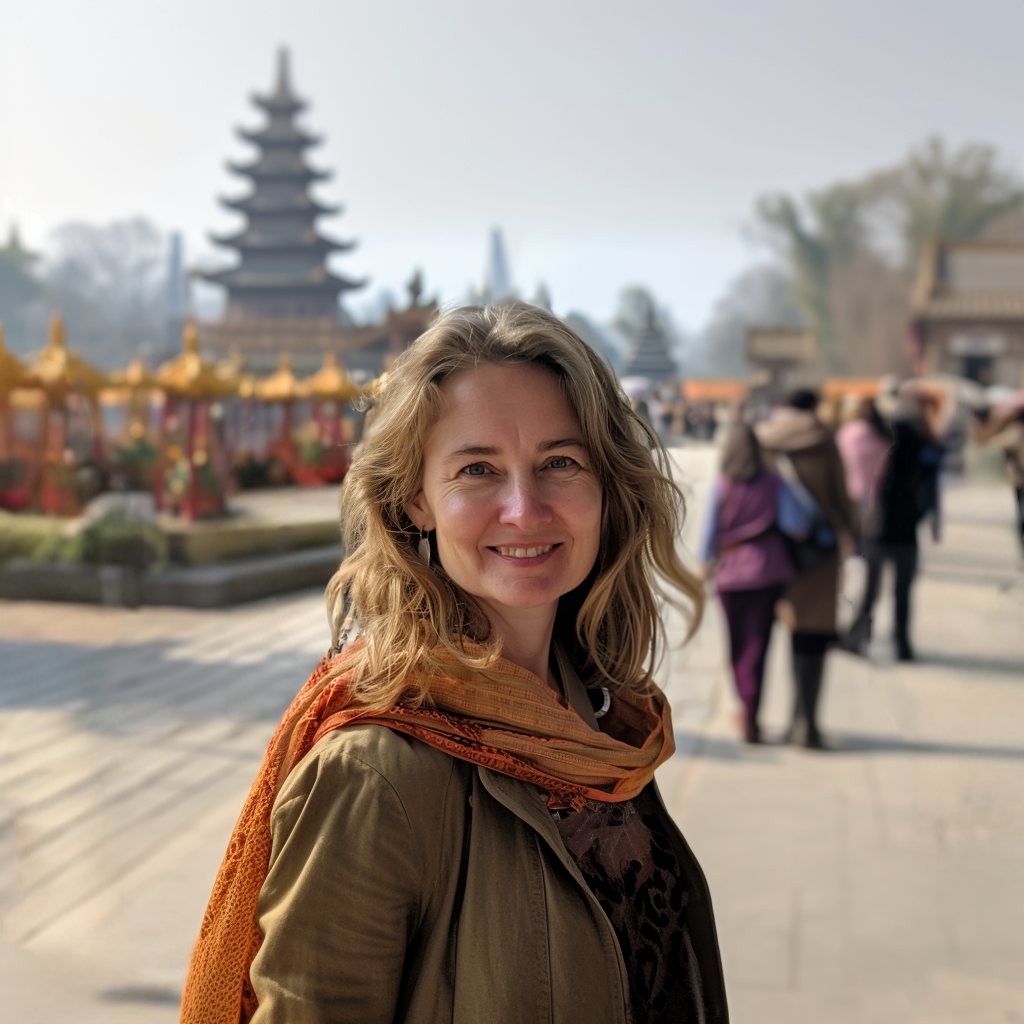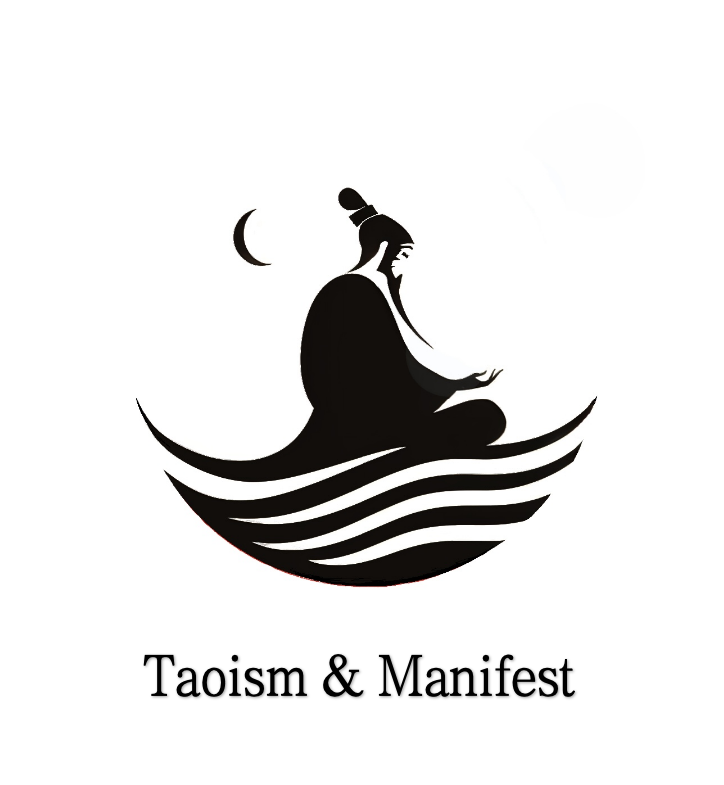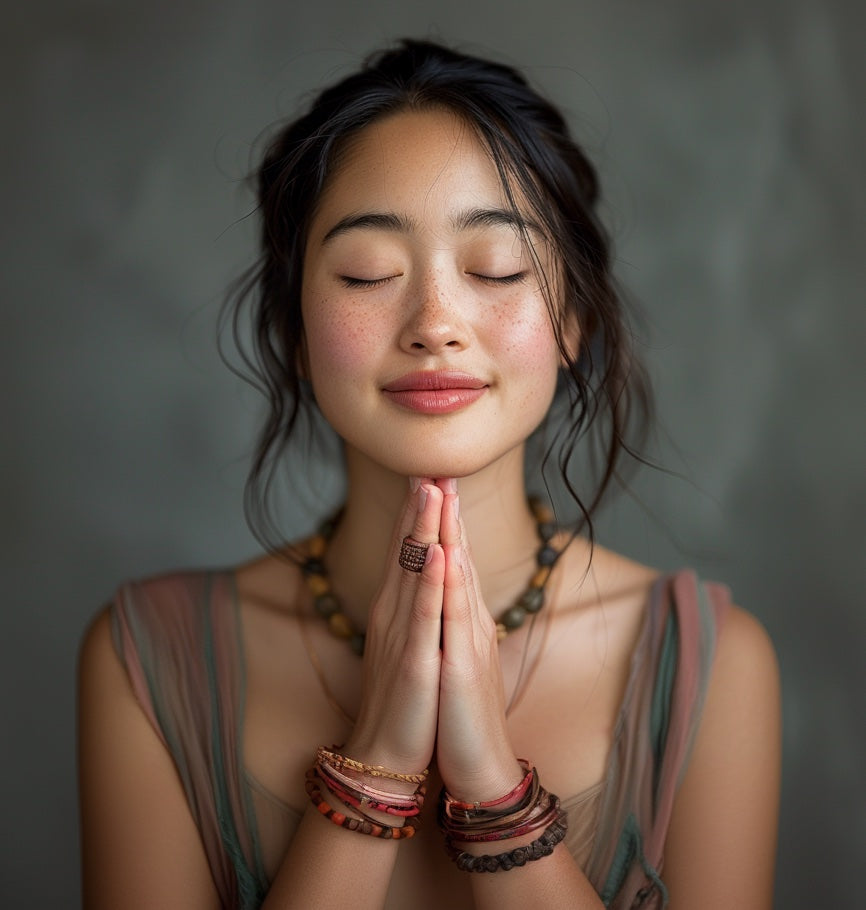
The Taoist way of detachment for a balanced and peaceful life

Have you ever seen how your peace can go away when you hold on too hard to people or what you want to happen? What you expect can change how you feel and even how balanced you are. Studies show that:
Secure attachment connects to liking yourself more and having better friendships.
Insecure attachment, like being anxious or avoiding others, often brings more stress and less happiness.
People with secure attachment show more care and feel closer to others, but people with high attachment anxiety have a harder time bouncing back.
The Taoist way of detachment gives a kind way to let go without stopping your care for life. You may notice that small, careful changes from Taoist ideas can help you feel more calm each day.
To fully understand why Taoism teaches letting go without losing compassion, see What Is Taoism for a clear overview of its beliefs and worldview.
Key Takeaways
Practice detachment to feel calm. Let go of things you cannot change. Stay open to how life moves.
Choose simplicity. Pay attention to what is important. Remove things that distract you. This helps you feel peaceful.
Use moderation every day. Do not do too much or too little. Find balance by making careful choices.
Try Wu Wei, which means effortless action. Let things happen on their own. Do not push for results.
Meditate to relax your mind. Meditation helps you handle change. It also lowers your stress.
Taoist Way of Detachment and Inner Peace
Detachment Without Apathy
You might wonder if letting go means you have to stop caring. In the Taoist way of detachment, you do not turn away from life or become cold. Instead, you learn to release what weighs you down while staying open to the world around you. Taoist teachings say that detachment is not the same as disconnection. When you practice detachment, you keep your mind, body, and spirit in balance. You do not lose your focus or your love for life.
Taoism teaches you to let go of material things, but not to reject them. You can enjoy what you have without clinging to it. This helps you avoid the pain that comes from losing things that do not last. The Taoist way of detachment asks you to allow things to come and go naturally. You do not force or hold on too tightly. This is called wu-wei, or "non-action." It means you act with ease and let life flow. You stay engaged and present, not indifferent or uncaring.
Tip: Try to notice when you feel yourself holding on too tightly to something. Ask yourself if you can let it go, even just a little. You may find more peace in the process.
Balance Through Letting Go
Letting go can feel scary at first. You might think you will lose something important. But Taoist wisdom shows that letting go often brings more balance and peace. Lao Tzu, a famous Taoist teacher, once said:
“Letting go of what you cannot keep, to find what you cannot lose.” — Lao Tzu, Tao Te Ching
When you let go of things you cannot control, you make space for new experiences. You also protect your energy and well-being. Studies show that when you stop chasing goals that are out of reach, you feel less stress and more satisfaction in life. You do not waste energy on things that drain you. Instead, you focus on what matters most.
Taoist literature gives you simple ways to practice letting go:
Work without forcing.
Taste the tasteless.
See the simple in the complicated.
Achieve greatness in small things.
You can start small. Maybe you let go of a grudge or a worry about the future. Each time you do, you move closer to balance. Taoism reminds you to be like water. Water adapts to any shape and flows around obstacles without losing itself.
“Be like water, which adapts its shape to the container it is in.” — Lao Tzu, Tao Te Ching
Nature does not rush, but everything gets done. You can follow this example in your own life. When you let go, you find a steady, peaceful center. The Taoist way of detachment helps you live with more ease and less struggle.
If you want to explore more about how ancient wisdom can help you find peace, you might enjoy reading How Taoism Teaches Us to Embrace Change and Uncertainty.
Taoism’s Core Principles for Harmony
Living in Accord with the Tao
Taoism invites you to see life as a flow, much like a river. You do not have to fight the current. Instead, you can move with it. This idea comes from the Tao Te Ching, a classic Taoist text. It teaches that you find peace when you act in harmony with the natural world. You do not need to follow strict rules. Taoism gives you a flexible path. You can choose what fits your life.
The Taoist way of detachment helps you let go of things that block your peace. You learn to act with ease, not force. This is called wu wei. Wu wei means you do what needs to be done, but you do not push against the world. You also practice the Three Treasures: compassion, frugality, and humility. These values help you care for others, live simply, and stay humble.
Here are two important Taoist texts:
Text |
Description |
|---|---|
Tao Te Ching |
A classic book that shows you how to live simply and deeply with the Tao. |
Zhuangzi |
Uses stories to help you understand the Tao in everyday life. |
Tip: Try to notice when you feel rushed or stressed. Ask yourself if you can slow down and let things unfold naturally.
Interconnectedness of Hardship and Peace
Taoism teaches that peace and hardship are linked. You cannot have one without the other. When you accept this, you feel more balanced. Life has ups and downs, just like the seasons change. If you try to fight hard times, you may feel more stress. But if you flow around problems, like water, you protect your health and mind.
Taoism says to follow nature’s laws with calmness.
Accepting change brings inner peace.
Letting go of control helps you see life as a cycle.
You may notice that when you accept both good and bad times, you grow wiser. Studies show that people who stay calm during hard times feel more connected and happy. Suffering can lead to growth. Inner harmony comes from embracing all parts of life, not just the easy ones.
“Mature happiness means staying calm and accepting, even when life gets tough.”
The Taoist way of detachment reminds you that peace is not the absence of trouble. It is the ability to move with life, no matter what comes.
Simplicity, Moderation, and the Middle Path

Value of Simple Living
Life feels easier when you keep things simple. Taoism asks you to drop extra worries and focus on what matters most. Many Taoist stories show that simple living brings peace and freedom. For example:
'Pure conversation' in Taoism means talking about life and ideas. It does not mean chasing money or status.
Liu Ling, a famous Taoist, walked around without clothes. He wanted to show he did not care what people thought. He wanted to be close to nature.
Wang Hui-chih traveled far to see a friend but turned back before he got there. He listened to his heart and did not force himself to do more.
These stories teach you that you do not need to follow every rule or collect things to be happy. When you clear out clutter from your home and mind, you make space for calm and joy.
Tip: Try spending a day with fewer distractions. See how you feel when you enjoy simple things, like walking outside or eating a quiet meal.
Practicing Moderation Daily
Moderation helps you stay balanced. Taoism teaches you to avoid extremes and walk the middle path. This way helps your well-being in many ways. Here is how Taoist moderation compares to other philosophies:
Aspect |
Taoism |
Other Philosophies |
|---|---|---|
Emphasis on Moderation |
Strong focus on moderation |
Varies, often less emphasized |
Approach to Well-being |
Holistic (psychological, social) |
Often segmented (psychological, physical) |
Emotional Resilience |
Integral to practice |
Present but varies in emphasis |
Mind-Body Relationship |
Central to philosophy |
Less integrated in some traditions |
Cultural Context |
Deeply rooted in Chinese culture |
Varies widely across cultures |
You can use moderation every day with small steps:
Practice mindful breathing to connect with life.
Clear out things you do not need to keep life simple.
Spend time in nature to help you feel balanced.
Use wu-wei by letting go of the need to control everything.
Think about your day to stay true to your values.
The Taoist way of detachment helps you enjoy life without holding on too tight. When you choose simplicity and moderation, you make room for peace and happiness.
Wu Wei and Effortless Action
Letting Go of Control
Sometimes you want to control everything in your life. This can make you feel stressed and tired. Taoist teachings show another way. Wu Wei means "effortless action." You let things happen on their own. You do not force anything. When you follow Wu Wei, you adjust to what comes. You act with life, like water moving around rocks.
-
Wu Wei helps you:
Accept that change is normal.
Focus on what you can do now.
Let go of strict expectations.
Work with nature, not against it.
Many people find it hard to let go. Mental attachments and social pressure make it tough. You may worry about others’ opinions or try to control every result. Taoism teaches you to live in the present. Trust how things unfold. When you stop fighting reality, you feel lighter and calmer. Studies show Wu Wei helps people avoid extra struggles. It brings balance, even when life is hard. To explore how “going with the flow” works in real life — not just in theory — check out What Taoism Teaches About Going With the Flow.
Tip: If you feel stressed, pause and ask if you can let go of what you cannot control. Notice how your body and mind feel.
Small, Mindful Actions
You do not need big changes to use Wu Wei. Small, mindful actions help you find balance each day. Try slow breathing or gentle stretching in the morning. Focus on one thing at a time. Take breaks to rest. At night, think about your day and get ready for tomorrow.
Here is a table that shows how Wu Wei can change your daily routine:
Activity |
Common Approach |
Wu Wei Approach |
Results |
|---|---|---|---|
Work Projects |
Pushing through long hours |
Working in focused intervals |
Better quality, less exhaustion |
Decision Making |
Overanalyzing choices |
Trusting your intuition |
Quicker, clearer decisions |
Time Management |
Strict scheduling |
Adapting to energy levels |
Lower stress |
Communication |
Forcing conversations |
Engaging naturally |
Genuine connections |
You can use Taoist-inspired solutions for common problems:
Emptiness meditation for work stress helps your mind feel calm.
Burning meditation helps with digital overload and clears your thoughts.
Mindful task completion lowers stress from time pressure.
The Taoist way of detachment asks you to let go of control and enjoy life’s flow. If you want to learn more about how Taoism helps you handle change and uncertainty, check out How Taoism Teaches Us to Embrace Change and Uncertainty.
Meditation and Mindful Detachment

Calming the Mind
Sometimes your mind is full of thoughts and worries. Meditation helps you slow down and find quiet inside yourself. When you meditate, you learn to focus on one thing at a time. This focus helps you relax deeply and feel peaceful. Many people say meditation lowers stress and sadness. You start to feel steadier and less controlled by your feelings.
Here are some ways meditation helps you feel better:
Meditation helps you relax and feel calm inside.
It teaches you self-control and helps you recover from hard times.
You may notice less stress and more balance in your feelings.
Mindfulness meditation shows you how to watch your thoughts without judging them. This makes it easier to let go and feel lighter.
Taoist meditation uses special ways to calm your mind and body. These methods help you relax, notice your body, and get ready for spiritual growth.
Technique |
Description |
|---|---|
Breathing Techniques |
Breathe deeply with your diaphragm to relax your whole body. |
Visualization Exercises |
Picture energy (qi) moving through your body to quiet your mind. |
Zhan Zhuang |
Stand still like a tree to feel calm and notice your body. |
Acceptance and Loss of Ego
Taoist meditation teaches you to accept things as they are. You learn to stop trying to control everything. This helps you see that your thoughts and feelings are not who you are. You can step back and watch them come and go.
Taoist tradition gives you ways to practice acceptance and lower your ego:
Description |
|
|---|---|
Paradox Contemplation |
Think about ideas like "doing without doing" to open your mind. |
Perspective Shifting |
Try to see things from different points of view, not just your own. |
Simplicity Cultivation |
Let go of extra knowledge and return to a simple, clear mind. |
Progressive Letting Go |
Slowly let go of feelings, senses, and even your sense of self. |
You may find these practices help you feel more open and less defensive. Studies show letting go of ego makes your mind more flexible and peaceful. The Taoist way of detachment uses meditation to help you accept change, let go of stress, and find harmony with yourself and the world.
You can bring the Taoist way of detachment into your life with small steps. Try clearing clutter, practicing mindful eating, or taking time to breathe deeply each day. Many people who follow this path find more balance, kindness, and peace. Remember, harmony grows as you practice. If you want to learn more, check out books like Liezi or Neiye. 🌱
FAQ
What does detachment mean in Taoism?
Detachment in Taoism means you let go of things you cannot control. You stay open to life but do not cling to outcomes. This helps you feel calm and balanced.
Can I care about others and still practice detachment?
Yes, you can. Taoism teaches you to care deeply without holding on too tightly. You show kindness and love, but you do not lose yourself in worry or fear.
How do I start practicing Taoist detachment?
You can begin with small steps. Try mindful breathing, clear out clutter, or take a quiet walk. Notice your thoughts and let them pass. Each small action helps you feel more peaceful.
Will detachment make me feel less happy?
No, detachment can help you feel happier. You stop chasing things that do not last. You enjoy the present moment more. Many people say they feel lighter and more joyful.





